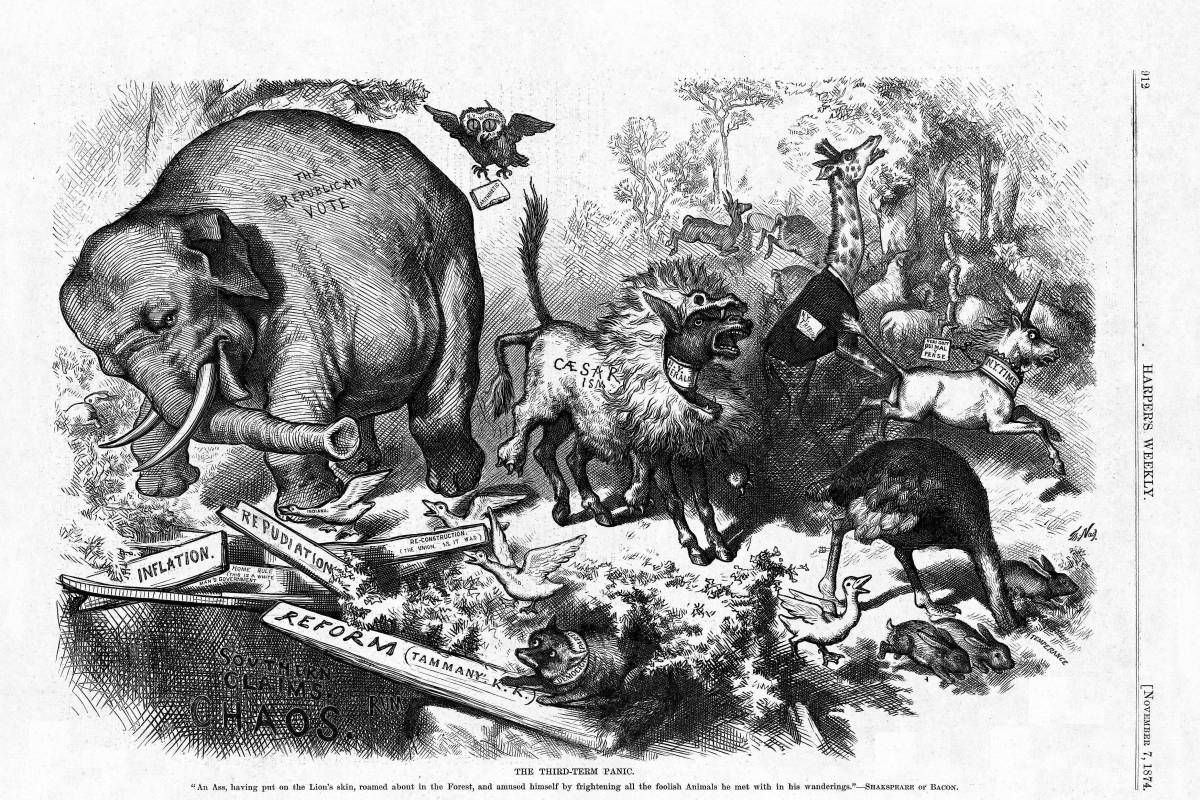
If you’re a Republican Party stalwart, and say you went to the Republican Governors Association meeting in Miami hoping for a good answer to the question of “Now what?” you might find yourself sweating bullets that the brand you thought was going to be a “permanent majority” for a generation (if not two), because Karl Rove said so, is looking a little like GM nowadays. Not quite bankrupt, but pretty close to it in terms of winning political ideas.
Now what, indeed.Á‚ The GOP is certainly at a crossroads as it’s abundantly clear many voters lost their taste for what the Republicans were selling and bolted in large numbers to Barack Obama. The party, though down, is not out, and hopes they can win voters back by getting back to basics like small government, low taxation, fiscal prudence and the like.Á‚ But there’s another wing of the party that thinks the culture wars will work its voodoo and bring voters back into the Big Tent. Moreover, they gots to get ’em some of that Web 2.0 that Obama successfully used to stay in touch with supporters.Á‚ In short, despite the dubbing they got on November 4th, Republicans are convinced the old brand still has national appeal — they just have to find the right medium to deliver the message.
However, here’s the problem:Á‚ George W. Bush’s presidency has knocked away the tent poles that kept that Big Tent aloft. Small government?Á‚ Ha!Á‚ Lower taxation comes with a huge deficit.Á‚ Fiscal prudence?Á‚ Please, do I really need to go down that road?Á‚ And what about compassionate conservatism and “Restoring honor and integrity?” If you read even a little of a new study by U.C. Berkeley entitled GuantÁƒ¡namo and Its Aftermath: U.S. Detention and Interrogation PracticesÁ‚ and their Impact on Former Detainees you’ll see example after example of a lack of compassion, honor and integrity emanating from the Bush White House.
The only hope the GOP has is the short memory of the American public, and a repetition of a few talking points that reinforces the core principles of the GOP — even though examples from the recent past (and present) will contradict the message heard in the echo chamber.Á‚ Having Obama in the Oval Office frees the GOP from having to say up is down and slavery is freedom every time the President speaks.Á‚ An Obama administration relegates Republicans to their areas of strength:Á‚ back-benching bomb-throwers who know how to tear a person down rather than commit to the day-to-day of governing.
But they have to be careful. This isn’t the ’90s, and Obama is not Bill Clinton whose dodgy past and equally dodgy personal behavior provided a steady stream of cannon fodder.Á‚ The Democratic Party has learned a lot from being held up as the demon seed for the past 20 years.Á‚ It took time to shake out a lot of the dead wood in the Party, but I think Obama is poised to usher in an era where the long shadow of the ’60s ceases to be a source of division in our country.Á‚ I bring up the ’60s because without that era, it’s not clear the Republican Party (in its current incarnation) would even exist. The heated rhetoric of the culture wars, the fanatical devotion to free-market principles, and the belief that government is the problem are not necessarily conservative points of view. Many on the left during the ’60s had similar views that — while filtered through a new leftish perspective — were very much about identity politics, cottage-industry/DIY capitalism, and a huge distrust of government.
I’m not saying either of these political perspectives were entirely misguided (though the excesses of each are very well known, and for the Right, all-too-recently familiar), but these ideologies are bound by a specific time in history.Á‚ And what is happening is that as our historical circumstances change, the ideologies that seemed so fresh, so radical, so appealing at one time, are now relics and roadblocks that do little to address the needs of people today.
We live in a world where the U.S. is not the biggest economic player around.Á‚ Our relations with the world cannot be framed by a “Well, we won the Cold War” mentality or a continuation of the Bush Doctrine. Nor can our feverish desire to always attain more in a material sense drive our sense of purpose. And while this may rankle libertarian sensibilities, government (for better or worse) has been and will continue to be an active agent in framing our future. Our responsibilities as citizens is to do our part to minimize the rot in the system by being actively engaged — instead of sitting on the sidelines listening to political bomb-throwers and media clowns foment resentment at the very institutions that can be the most responsive to our needs.




Comments